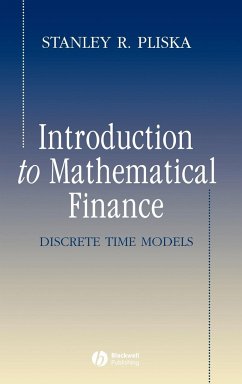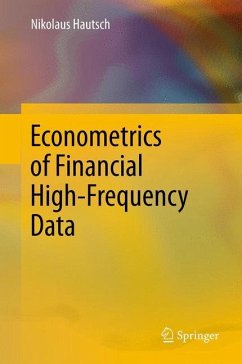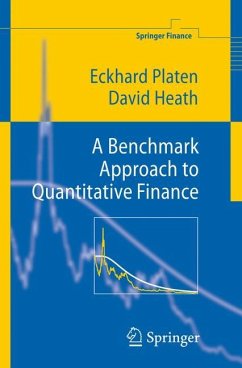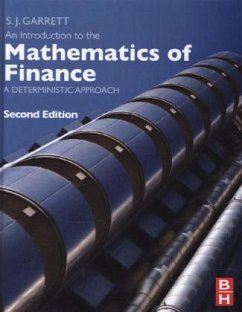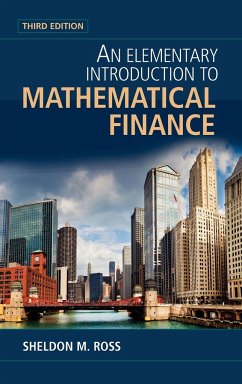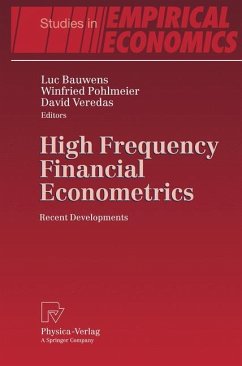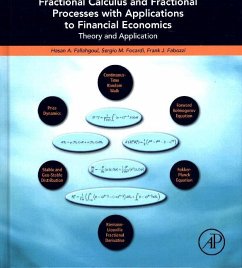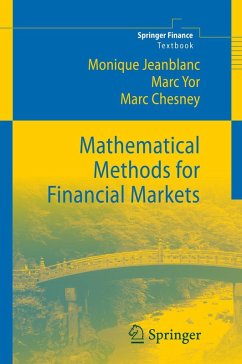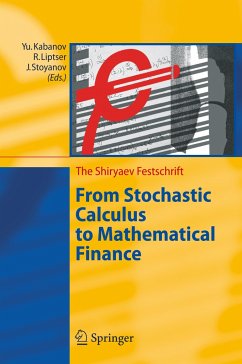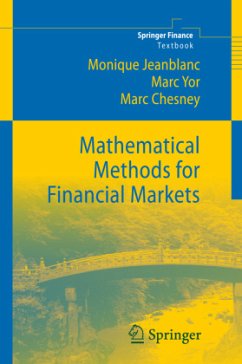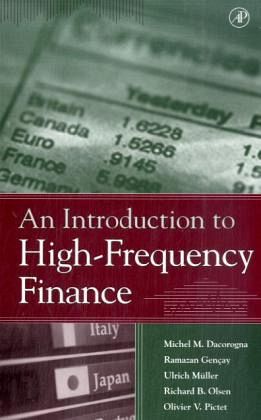
An Introduction to High-Frequency Finance
Versandkostenfrei!
Versandfertig in 6-10 Tagen
84,99 €
inkl. MwSt.

PAYBACK Punkte
42 °P sammeln!
Liquid markets generate hundreds or thousands of ticks (the minimum change in price a security can have, either up or down) every business day. Data vendors such as Reuters transmit more than 275,000 prices per day for foreign exchange spot rates alone. Thus, high-frequency data can be a fundamental object of study, as traders make decisions by observing high-frequency or tick-by-tick data. Yet most studies published in financial literature deal with low frequency, regularly spaced data. For a variety of reasons, high-frequency data are becoming a way for understanding market microstructure. T...
Liquid markets generate hundreds or thousands of ticks (the minimum change in price a security can have, either up or down) every business day. Data vendors such as Reuters transmit more than 275,000 prices per day for foreign exchange spot rates alone. Thus, high-frequency data can be a fundamental object of study, as traders make decisions by observing high-frequency or tick-by-tick data. Yet most studies published in financial literature deal with low frequency, regularly spaced data. For a variety of reasons, high-frequency data are becoming a way for understanding market microstructure. This book discusses the best mathematical models and tools for dealing with such vast amounts of data.This book provides a framework for the analysis, modeling, and inference of high frequency financial time series. With particular emphasis on foreign exchange markets, as well as currency, interest rate, and bond futures markets, this unified view of high frequency time series methods investigates the price formation process and concludes by reviewing techniques for constructing systematic trading models for financial assets.



